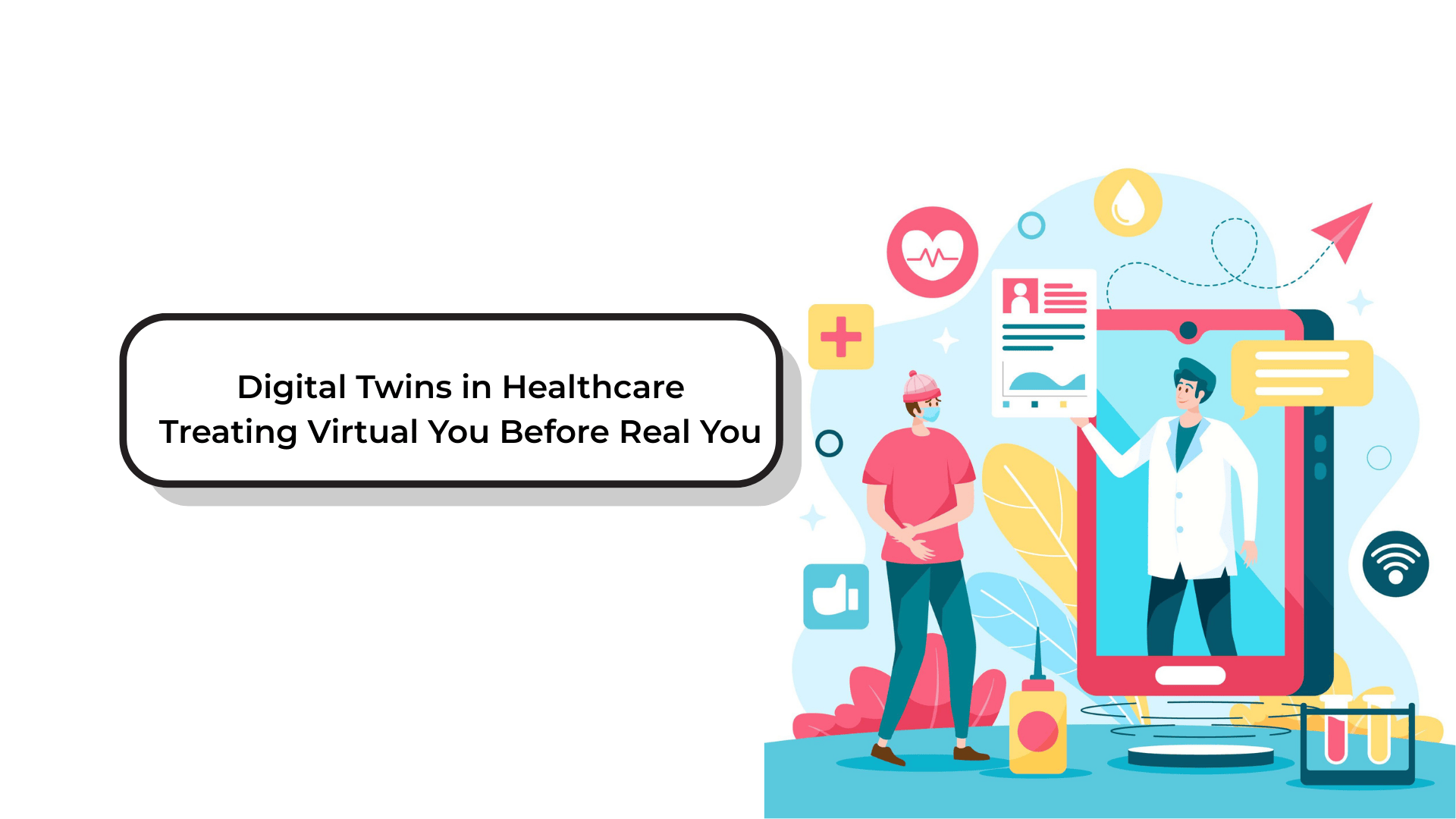Imagine your doctor running simulations on a virtual version of you before recommending a treatment. Sounds futuristic? Welcome to the world of digital twins in healthcare, a game-changing innovation that’s turning that vision into reality.
What Is a Digital Twin in Healthcare?
A digital twin is a virtual model that mirrors a real-world system, object, or person. In healthcare, it means creating a digital replica of an individual’s biological and physiological data, including organs, genetics, lifestyle, and real-time health metrics.
This virtual twin can simulate how the body might respond to certain medications, surgeries, or health interventions, offering a safer and more precise way to personalize healthcare.
How It Works
- Data Collection
- Real-time data from wearables, medical records, imaging, and genetic information are fed into the digital twin.
- Simulation & Prediction
- AI and machine learning models simulate scenarios such as disease progression or treatment outcomes.
- Decision Support
- Doctors use these simulations to identify the best treatments before applying them to the patient.
Benefits of Digital Twins in Healthcare
- ✅ Personalized Medicine: Treatment is customized to your unique biology.
- ✅ Early Disease Detection: Predictive models can catch conditions before symptoms appear.
- ✅ Surgical Planning: Surgeons can first simulate complex procedures on a virtual model.
- ✅ Remote Monitoring: Virtual twins update in real-time, allowing continuous health tracking.
- ✅ Clinical Trials Simulation: Reduces risks by testing drugs on digital populations before human trials.
Real-World Use Cases
- Cardiology: Creating digital heart models to test pacemakers or stents.
- Oncology: Simulating tumor growth and therapy response.
- Diabetes Management: Monitoring insulin levels and dietary effects.
- Mental Health: Predicting emotional and behavioral responses to treatments.
Companies like Siemens Healthineers, Dassault Systèmes, and Philips are already piloting digital twin technologies in hospitals and research labs.
Challenges and Considerations
While the promise is enormous, digital twins also raise concerns:
- 🔒 Privacy: Handling highly sensitive personal health data.
- 🤖 Bias in Algorithms: Risk of inaccurate predictions due to incomplete data.
- 💰 Cost & Access: Ensuring these innovations are affordable and equitable.
The Future Outlook
As computing power, AI, and IoT devices advance, digital twins may become a routine part of healthcare, helping providers predict, personalize, and perfect treatment plans more confidently.
Instead of treating illness reactively, doctors may soon prevent disease by experimenting on your virtual self instead of treating it reactively.

